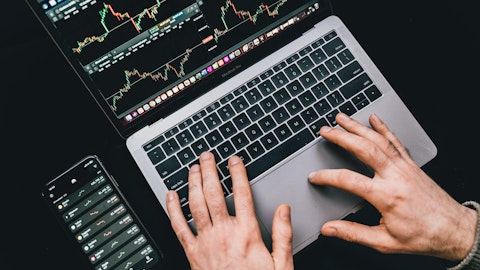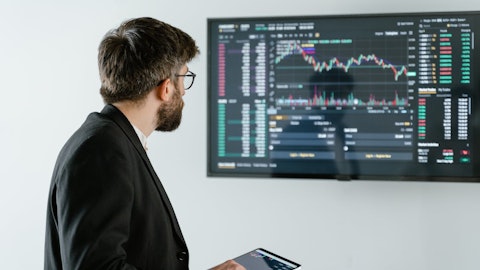Major technology firms across the globe are spending billions of dollars on artificial intelligence, striking massive deals that continue to reshape the industry. As spending on AI accelerates and valuations continue to soar, the big question emerging is related to the AI boom and its tendency to crash.
Here is what Anneka Treon, ING global head of Private Banking, Wealth Management and Investment, has to say:
“We continue to see opportunity because ultimately, AI bubble or not, it boils down to real dollars being spent on real capex with a … very long runway of funding ahead.”
Meanwhile, Jared Bernstein, former Biden CEA chairman, told CNBC’s “Squawk Box” that surging asset prices and extreme valuations reflect how an AI bubble is the “likely outcome.”
“You’ve got to account for future earnings,” Bernstein said. “But to us and many others, that divergence between credibly, plausible, expected future earnings and this level of investment certainly looks bubbly.”
Bubble or not, many spectators believe that the spending on artificial intelligence is critical to keep the US at the lead in the AI arms race.
“I think some of the investments that we’ve seen so far is not on AI, it’s more on cloud and the power of cloud. So I don’t believe this is a bubble, but I believe this is capital that in most cases is going to be well spent.”
-BlackRock CEO Larry Fink
Fink noted how existing massive stakes will ultimately lead to some failures, but that this is capitalism.
“That is capitalism,” Fink said. “We’re going to have some big winners and we’re going to have some big losers … but if you have a diversified portfolio, you’re going to be fine.”
For this article, we selected AI stocks by going through news articles, stock analysis, and press releases. These stocks are also popular among hedge funds. The hedge fund data is as of Q2 2025.
Why are we interested in the stocks that hedge funds pile into? The reason is simple: our research has shown that we can outperform the market by imitating the top stock picks of the best hedge funds. Our quarterly newsletter’s strategy selects 14 small-cap and large-cap stocks every quarter and has returned 427.7% since May 2014, beating its benchmark by 264 percentage points (see more details here).

10. Tempus AI, Inc. (NASDAQ:TEM)
Number of Hedge Fund Holders: 27
Tempus AI, Inc. (NASDAQ:TEM) is one of the 10 AI Stocks Making Waves on Wall Street. On October 20, Canaccord Genuity analyst Kyle Mikson reiterated a Buy rating on the stock with a $110.00 price target.
The firm is bullish on the stock, considering how AI deployment at scale in clinical practice is likely to drive robust long-term revenue growth for Tempus AI. The research note by the firm particularly highlighted Tempus AI’s acquisition strategy, including the Ambry deal, which it believes has the potential to accelerate growth by expanding testing capabilities and enhancing AI functionalities.
“Initiating TEM at BUY with $110 PT. TEM offers oncology testing for genomic profiling, data services and AI applications. In our opinion, the potential of AI deployment at scale in clinical practice could support strong long-term revenue growth for Tempus. TEM’s keen acquisition strategy (e.g., Ambry, etc.) could help accelerate growth by providing additional testing and enhancing its AI capabilities. Key assumptions in our DCF model for the company include a 10-year revenue CAGR of 22.8%, peak operating margin of 45.6% and a discount rate of 15.0%.”
Tempus AI, Inc. (NASDAQ:TEM) is a healthcare technology company that provides AI-enabled precision medicine solutions.
9. HP Inc. (NYSE:HPQ)
Number of Hedge Fund Holders: 51
HP Inc. (NYSE:HPQ) is one of the 10 AI Stocks Making Waves on Wall Street. On October 22, JPMorgan downgraded the stock to “Neutral” from Overweight with a $30 price target. According to the firm, HP is undergoing a rougher backdrop as it moves past the most favorable part of the PC volume and cost cycle.
Analyst Samik Chatterjee has deemed that 2026 will mark “the tail end of the Windows 10 replacement cycle.” This will result in tough comparisons for HP’s commercial PC business.
There is also “a challenging macro environment with limited catalysts to stimulate a replacement cycle for Consumer PCs,” whereas rising memory costs will probably weigh on margins as HP struggles to pass higher input prices on to customers.
“We are downgrading shares of HP Inc. (HP) from Overweight to Neutral as we see the company cycling past the favorable part of the volume and commodity cost cycle into a relatively tougher backdrop,…” ‘
Analysts at the firm also noted how the Windows 10-led replacement cycle has been stronger in 2025 to date, including in the third quarter. This has led them to raise their revenue and earnings forecast for the fourth quarter of 2025 (Oct-end).
“But the flipside of a strong cycle in 2025 helped by a combination of Win 10 support as well as potentially pull forwards earlier in the year on tariff concerns leads to a tougher backdrop for CY26 and CY27 where volumes are expected to remain challenged as they lap the tailwinds in CY25, even as the company has to navigate a higher commodity cost environment, which could sustain if AI infrastructure demand continues to exceed supply.”
-Chatterjee and his team.
HP Inc. (NYSE:HPQ) is a technology company that specializes in personal computing and printing solutions.





